LiA Peace and Social Resilience - week 2
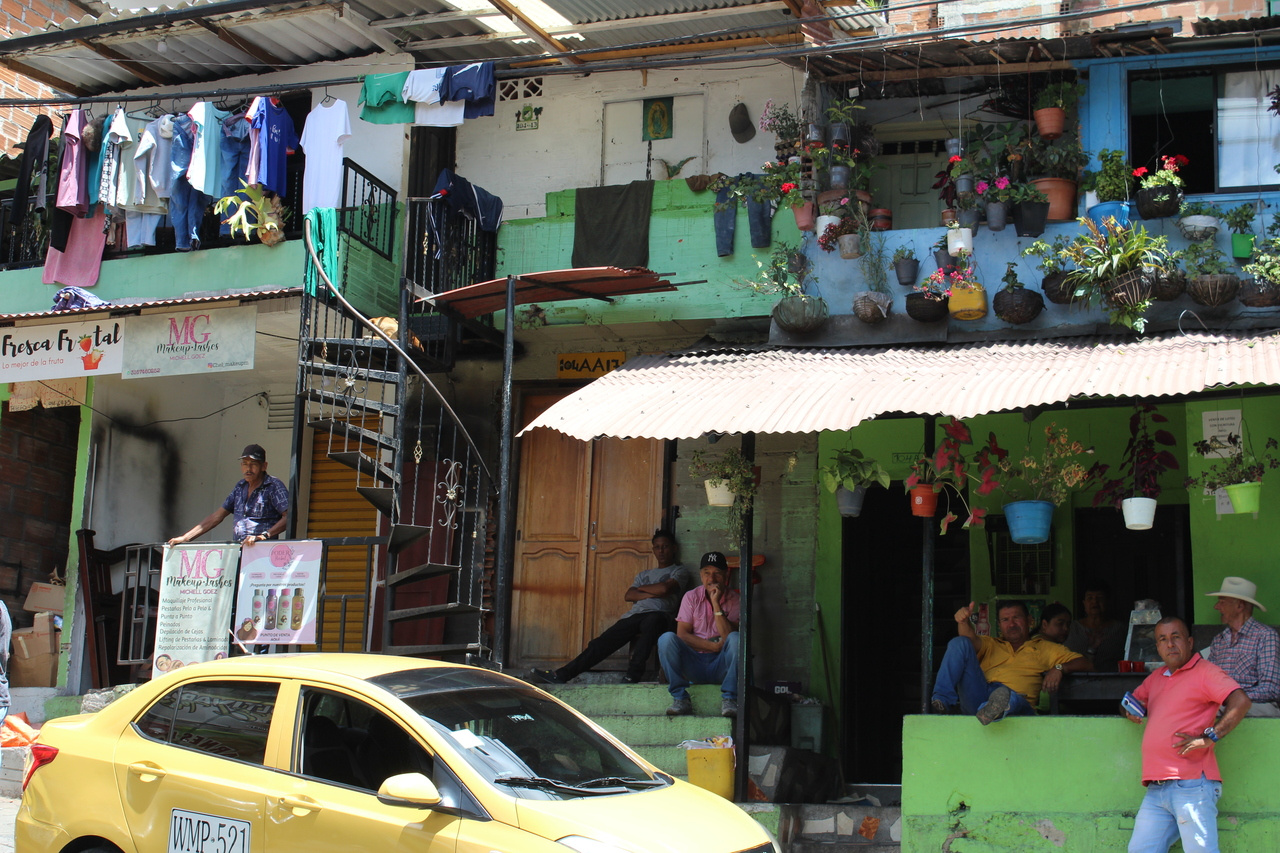
Week 2: the pace of our work starts picking up and we are slowly diving into the practicalities of our projects (we also had the chance to dive into the beautiful waters of the lake in Guatapé, where we attended a 2-days leadership camp!).
The three Spanish words serving as a common thread through the activities of this week are:
Comunidad (community), which is particularly relevant to our experience in the neighbourhood of Picacho;
Identidad (identity), an element we explored through the preparation of a cultural fair for UPB students and during the leadership camp;
Diálogo (dialogue), which works as an important bridge between one’s personal identity and the creation of a sense of community.
What went well?
During this week, we had the chance to look more closely at what community leadership looks like during the visit at the organisation Picacho con Futuro, which works in the homonymous neighbourhood to provide a space for citizens to gather and learn new skills - from theatre, to dancing and digital literacy. During the day we spent with them, we reflected on the meaning and practice of moving from an individualistic to a collective outlook when building community. In the context of a sawing workshop led by a volunteers of the community, each of us made a key chain from scratch and decorated it: everyone was proud of their creation and we were already discussing which loved one we would give the craft to. However, at the end of the workshop, we were unexpectedly encouraged (it was not mandatory) to swap our key chain with someone else’s in the group, to exemplify the ‘sacrifice’ of personal gain in favour of collective wellbeing and the idea of using one’s skills for someone else’s sake. Despite my initial resistance - the key chain I made was particularly well-done and carried personal meaning -, the guided reflection on the value behind this activity led me to swap my ‘precious’ key chain and donated me an important (life) lesson in return.
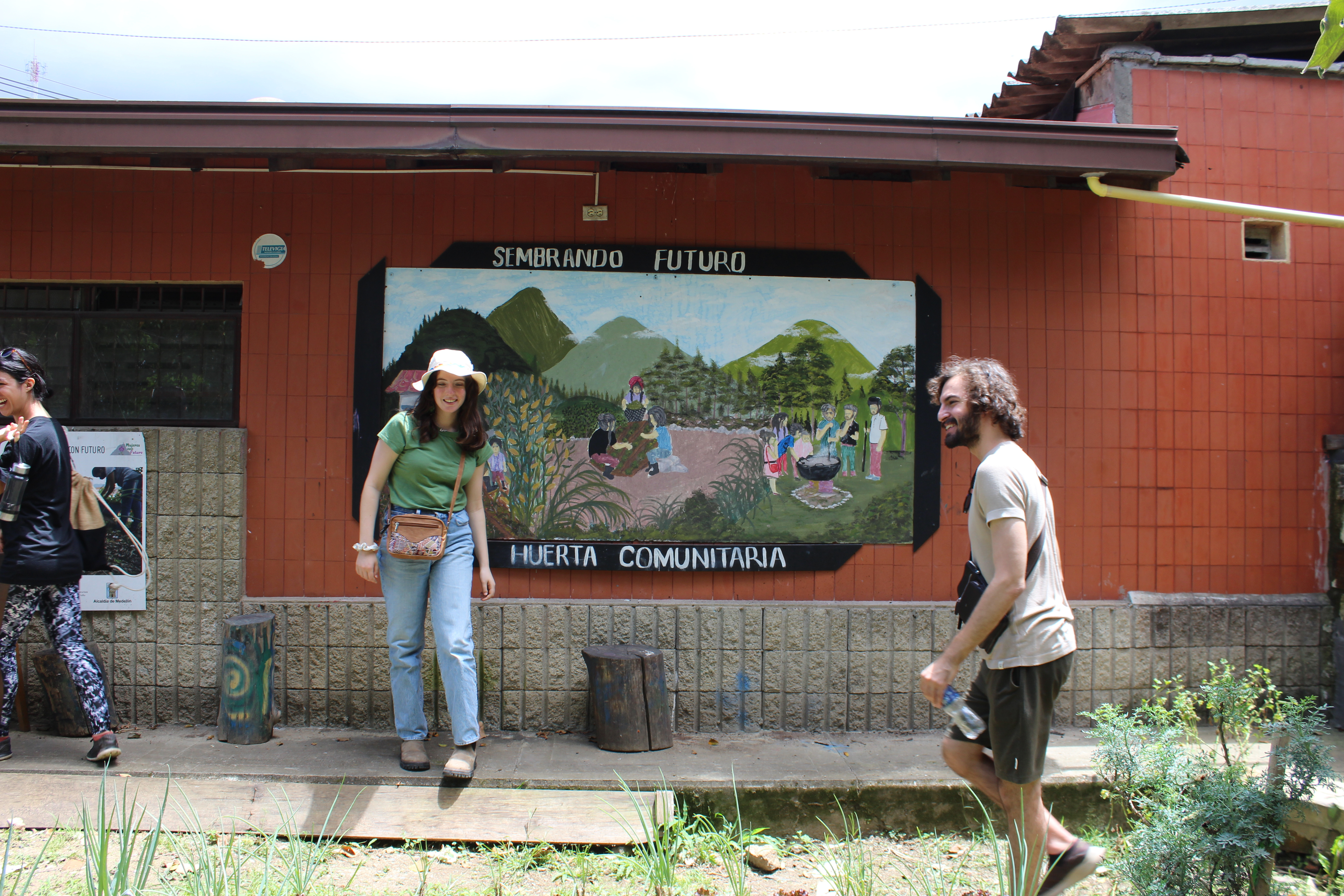
What could have been done differently?
The two-day leadership camp in Guatapé was a great opportunity to spend time in nature and get to know each other better as a group. During that time, I acknowledged more than ever before on this trip how challenging it can be to be working and living with a small, close-knitted group of people. Naturally, after almost three weeks together, some disagreements started emerging, especially because of the constant and ongoing comparison with others as a result of spending so much time exposed to one another. Personally, in this situation, I feel like I should have practised more tolerance towards different habits and behaviours, even when they might not align with the principles I have been raised up to. Particularly, I should keep in mind that I do not know the background story of everyone around me, nor what the reasons behind certain attitudes might be, and therefore I should be more compassionate and less impulsive in my reactions.
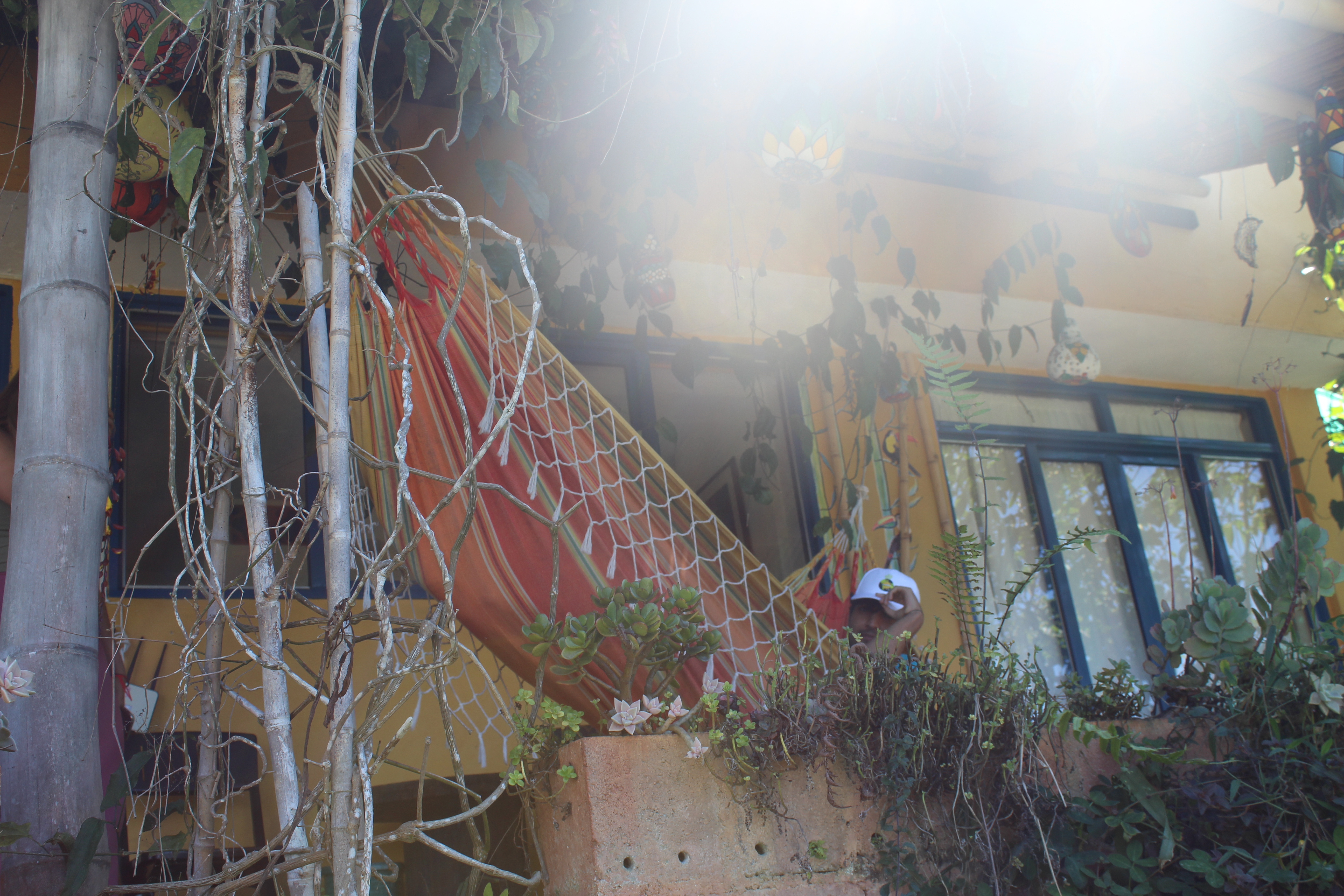
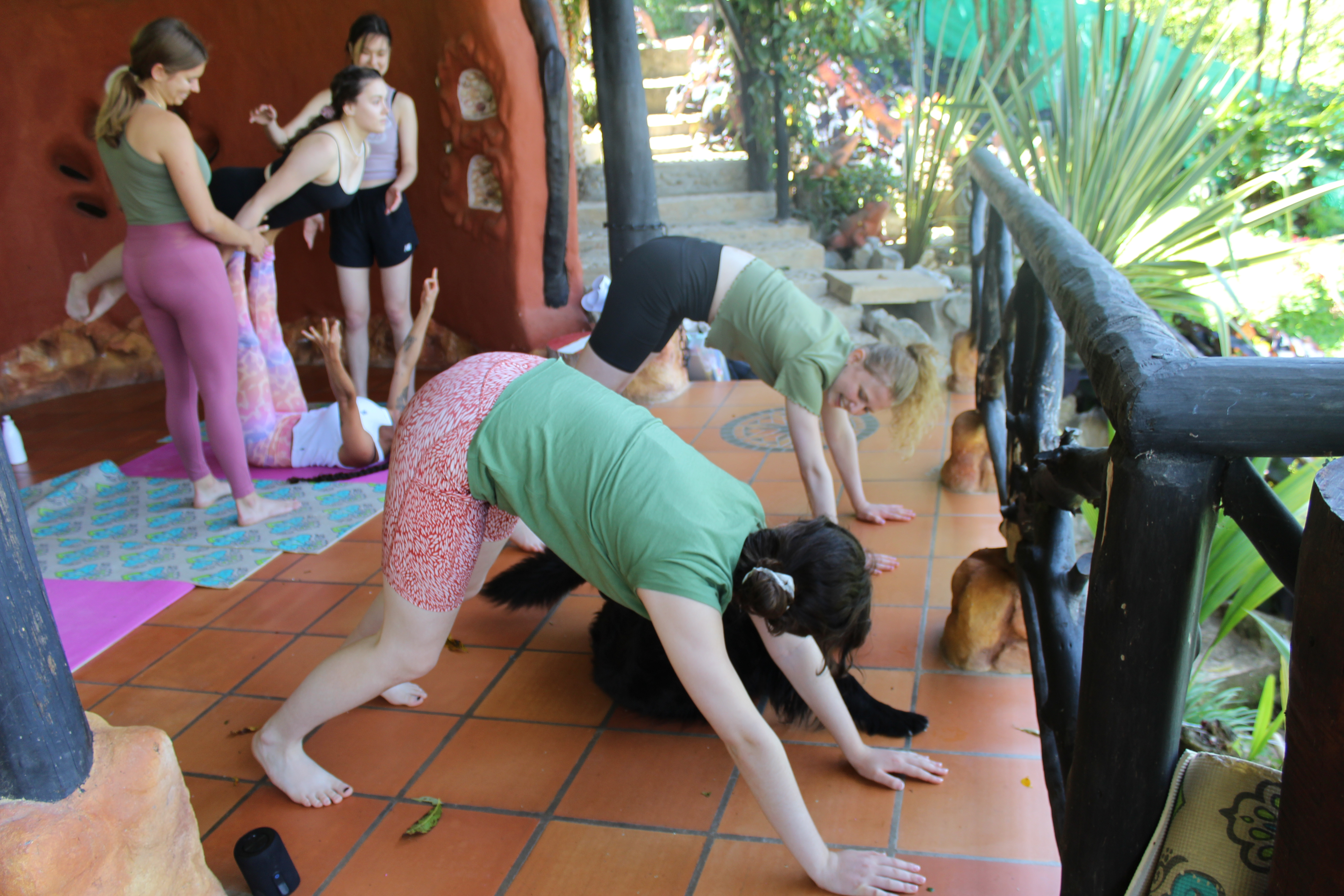
What did I learn about myself when working with others?
Besides the themes I touched upon in the previous section, the past week really tested my determination and resilience in challenging situations. The leadership camp was the environment in which we explored determination and resilience in their most ‘physical form’.
During a set of activities in the lake, I was pushed to overcome my fear of kayaking and paddle-boarding: swimming by myself was a saddening alternative - I tried it for a while- , and the prospect of being able to enjoy the afternoon with the group was what gave me the determination I needed to learn how to paddle-board. The day after, resilience was at stake: 12 km of mountain bike, followed by a hike of around 700 steps up a mountain (la Piedra del Peñol) were for sure a challenge, but again the curiosity to know what the view would look like from the top gave me strength to push through.
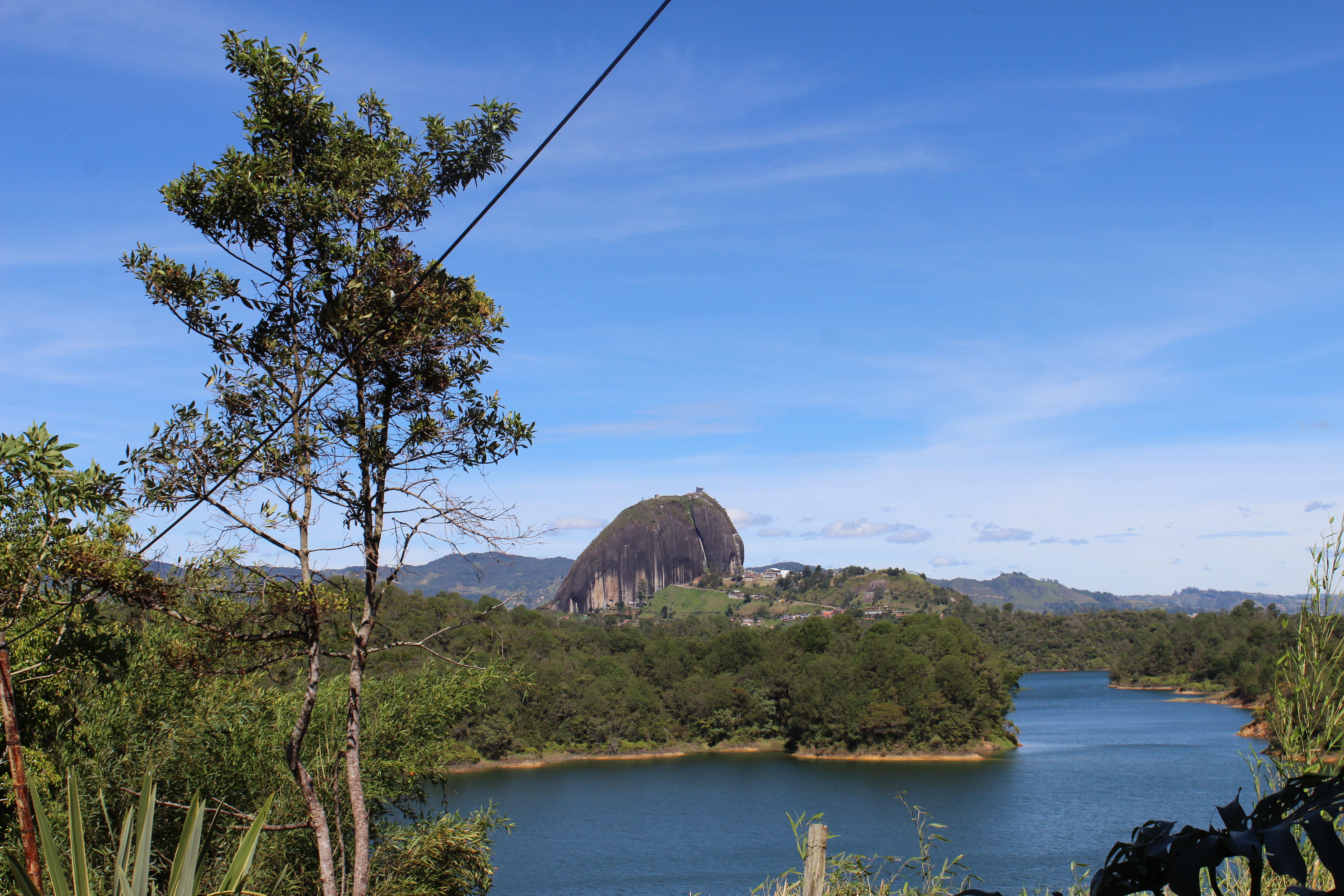
Similarly, whilst the re-emergence of my anxiety symptoms added a further level of complexity and challenge to this experience, I like to think about it as a lesson in determination and resilience: many times, my fear of confrontation and feeling of overwhelm prevent me from enjoying wonderful opportunities of collaboration, but reminding myself of the beauty of what’s beyond anxiety helps me to overcome it.
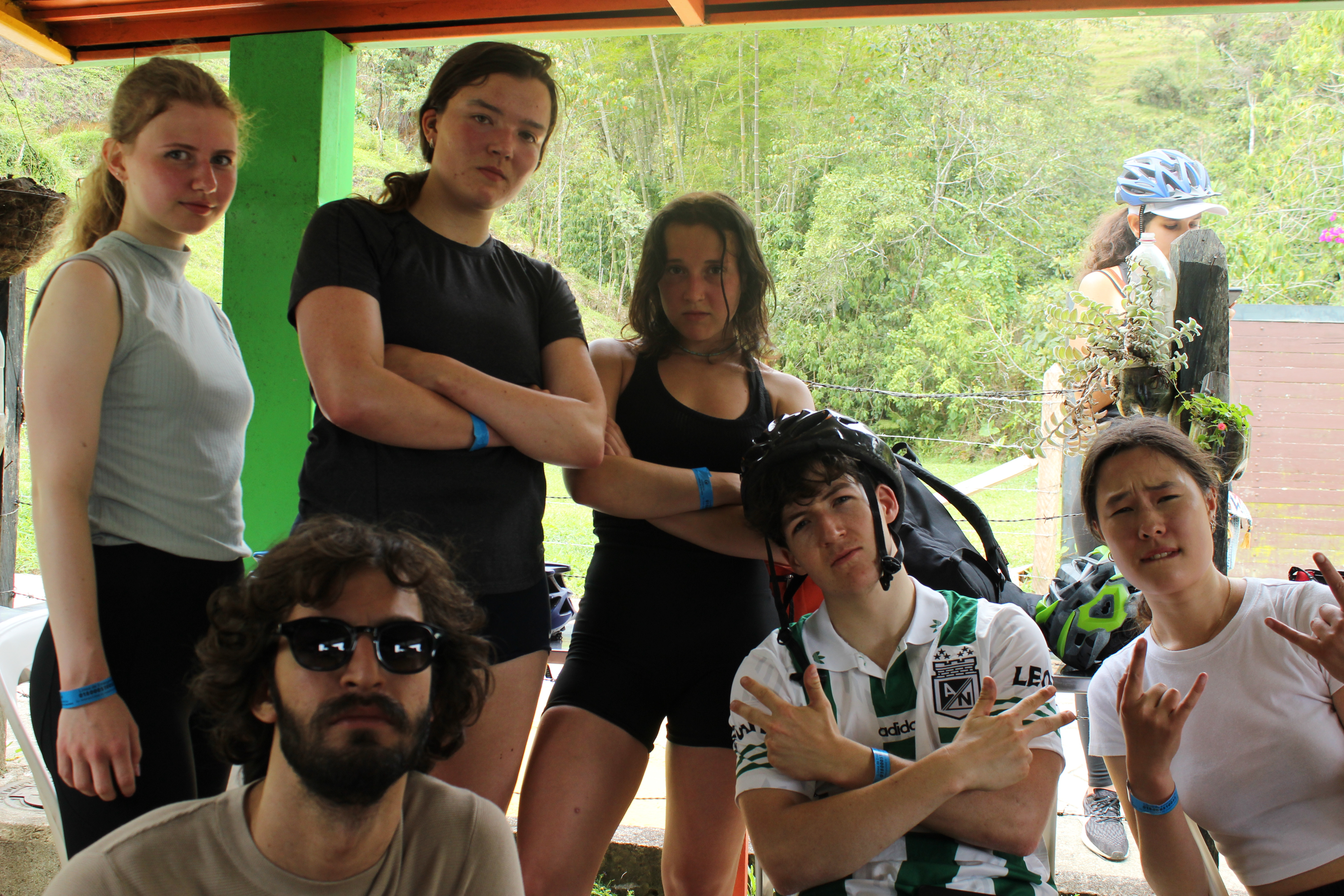
(From the left: Hannah - Durham, Ali - UofT, Ella - Leeds, myself, Jani and Hannah - UCL + Evelyn from makesense in the background)
What did I learn about leadership?
Through the various activities at the leadership camp and looking back at examples of liderazgo social (leadership that aims at promoting communitarian wellbeing and cohesion) that we encountered in the organisation Picacho con Futuro, I had the chance to reflect more on my own leadership abilities:
Ability to convey purpose and build coalitions: during the leadership camp, we did an activity aiming to share some aspect of our identity with the group. Each of us drew a shape representing themselves and filled it up with meaningful elements, values and people, placed more close/distant to the heart according to their level of importance in our lives. For someone like me, who is a very ‘visual thinker’, translating my personality into drawings allowed me to share more about myself than I did before. Observing the creations of my fellow scholars, it was evident how each of us made different choices in expressing ourselves: I decided to draw while others used words, some people drew the shape as a person, others as a map or a shape. From this exercise, it became evident that not everyone ‘speaks the same language’, and the same value or purpose can be conveyed in many different ways (and no way is intrinsically better than another, I like to believe). As a consequence, a good leader should always allow space for multiple ‘languages’ to be spoken and understood within the team. Facilitating this communication helps to build coalitions, as it initiates collective processes of value-creation by guiding people to see that oftentimes they are saying something similar but in different ways.
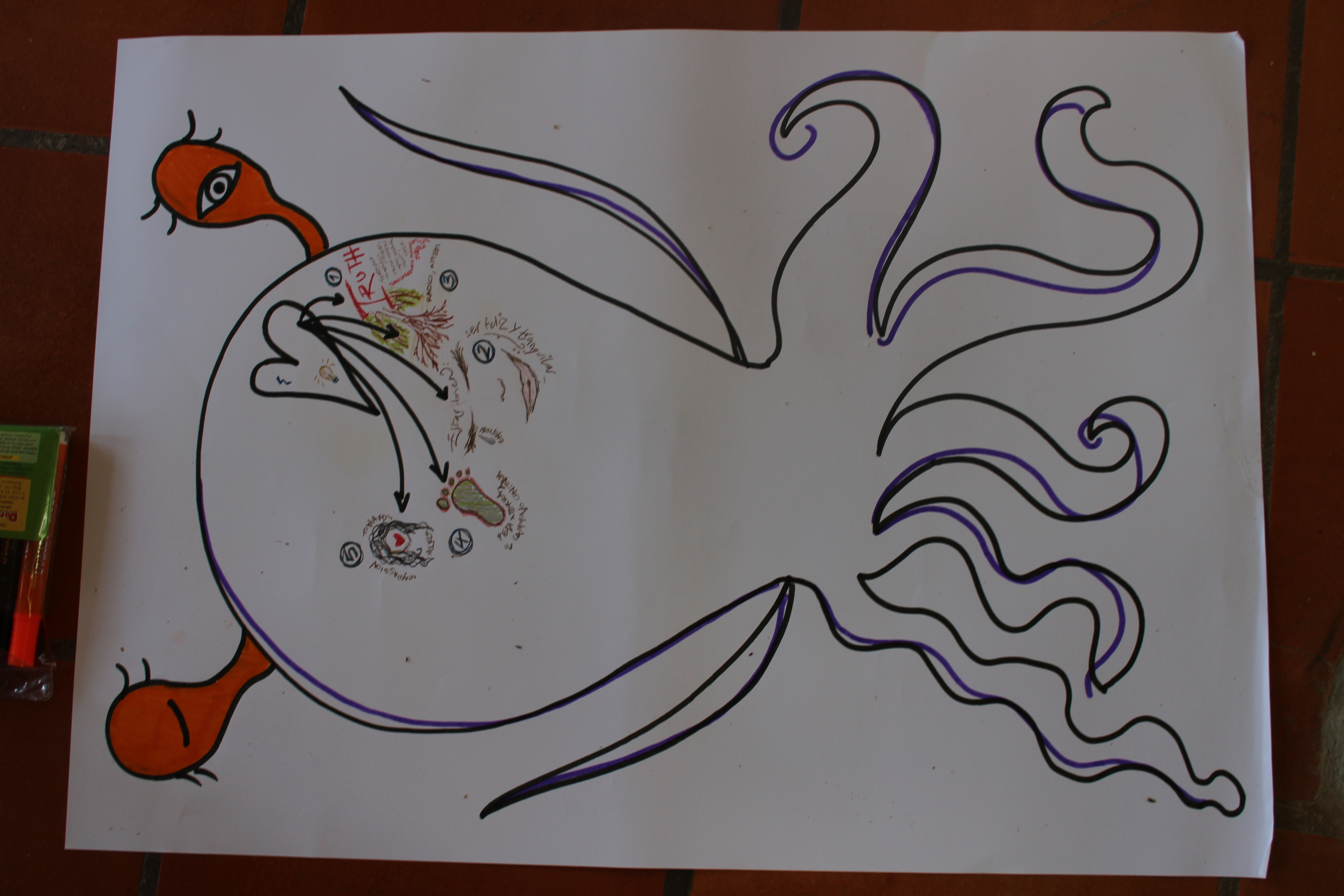
Cultural intelligence and capacity for empathy, Ability to lead without authority: these can be hard to practise in situations of high stress and physical fatigue, no matter how much one has practised those in the past. To be a good leader, one needs to practise these skills constantly, and update them according to context: in order to be a good leader, one needs to be a good learner and listener first.
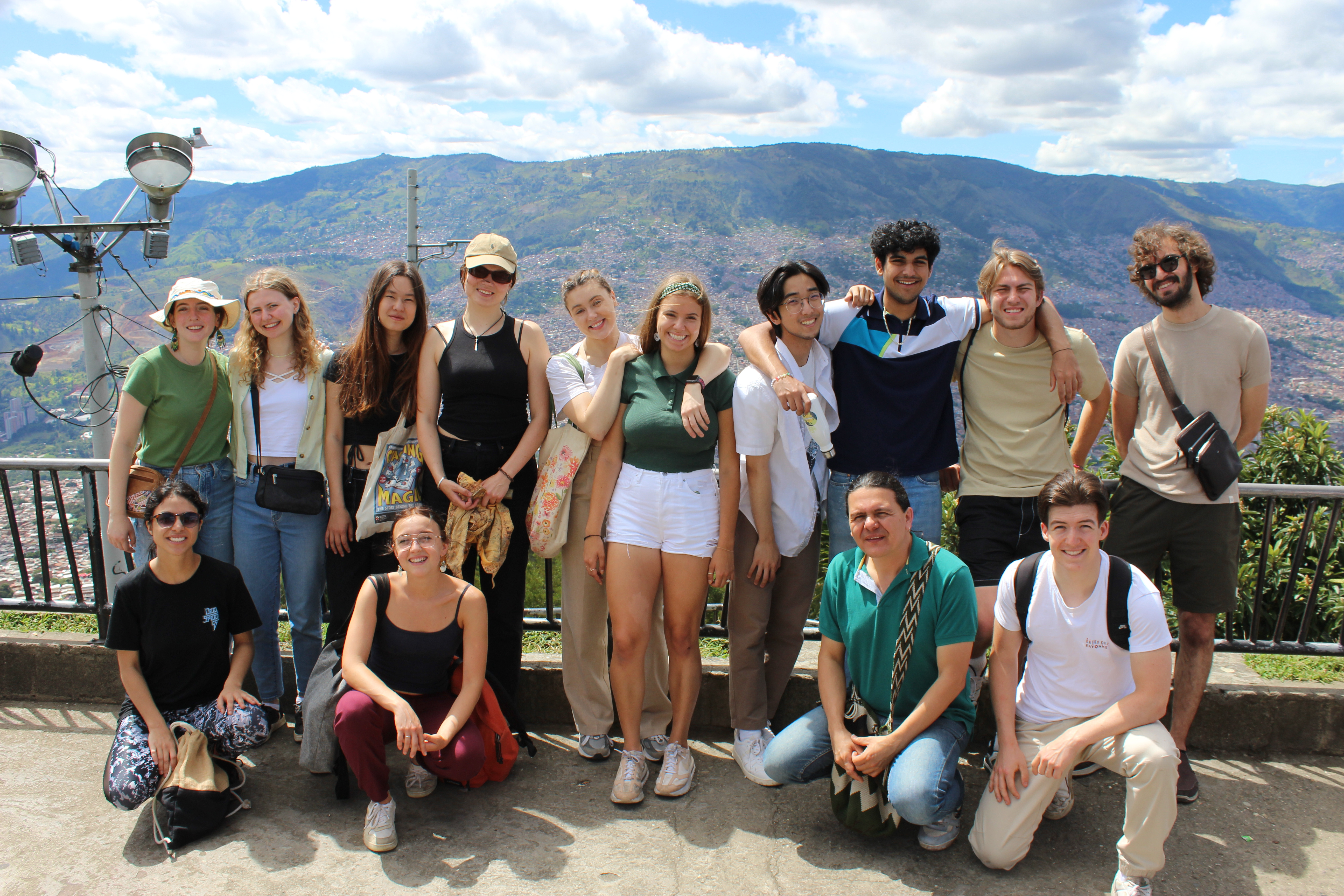





Please sign in
If you are a registered user on Laidlaw Scholars Network, please sign in
Your writing is so beautiful, I really enjoyed reading about your take-aways Lia!
Thank you for sharing and taking us along this beautiful journey. I look forward to learning more about your experience in Columbia and more Spanish words of course!
Thank you thank you, I can't wait to hear more about your project too...see you soon in St Andrews!!